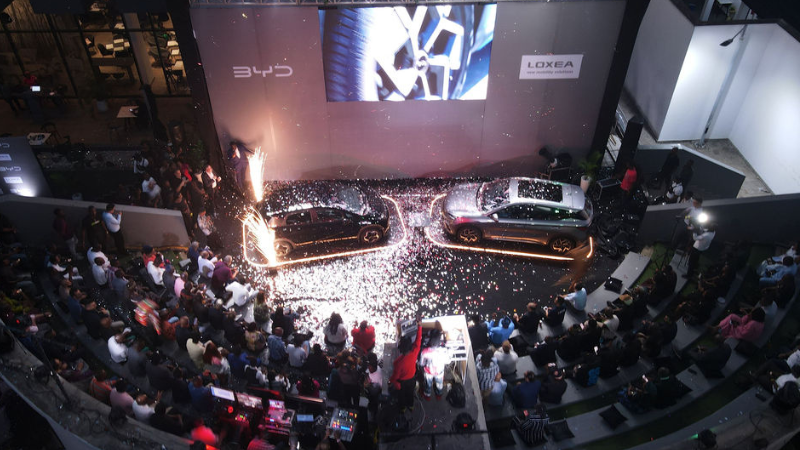The world’s largest Electric Vehicle maker, BYD, has expanded its reach into Africa’s largest auto market, Nigeria, via LOXEA Nigeria, a subsidiary of CFAO Mobility.
This move by the auto brand makes it a pioneer in championing EVs in Nigeria.
Managing Director of LOXEA Nigeria, Mr. Mehdi Slimani, stated, “We are proud to distribute this type of electric vehicle and all its associated services.”
He added that the upcoming showroom in Victoria Island, Lagos, will be a place dedicated to the discovery of BYD vehicles, combining modernity, comfort, and economy of use. “It is very important for CFAO Mobility in Nigeria to participate in this way in the country’s energy transition and support our customers who wish to make the switch to electric,” he added.
BYD, a cutting-edge global corporation, leads the world in electric and plug-in hybrid vehicles. As a Fortune Global 500 company, BYD remains steadfast in its commitment to innovation and building a sustainable future. In November 2024, the company made history by becoming the first to roll out its 10-millionth NEV. By achieving 4.27 million new energy vehicle sales in 2024, BYD secured the title of global sales champion for the third year running.
Marc Hirschfeld, CEO of CFAO Mobility, emphasized the importance of this launch for both the company and the country, saying, “BYD is one of the world’s leading manufacturers of electric vehicles, with a level of innovation know-how that now matches the expectations of our markets in Africa.”
According to him, a whole new ecosystem has to be designed around mobility in African cities. This applies not only to individual and corporate customers, but also to stakeholders, including urban public transport networks and government agencies.
Other African countries that have welcomed BYD onto their markets are Rwanda, Kenya, and South Africa.
BYD made its debut entry to Ghana in 2010 when Cofieco and Huang Limited, an automobile marketing company in Ghana, launched the BYD FO saloon car onto the Ghanaian market to solve the transportation needs of low-income drivers who wanted to own cars, due to its low fuel consumption rate.
However, Ghana has not seen widespread adoption of BYD vehicles or any follow-up. Additionally, no recent statements have specifically confirmed a major expansion or new entry of BYD’s EV range into the Ghanaian market.
BYD’s bold entry into the Nigerian market indicates growth and expansion as well as determination to take over the African EV market. Perhaps, its re-entry into Ghana might be closer than we think.




